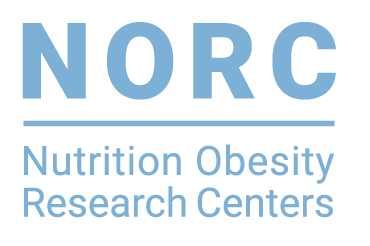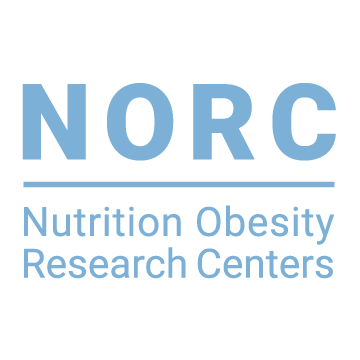Washington University, St. Louis
Organization and Goals
The Washington University, St. Louis NORC’s activities enhance our understanding of the basic and clinical aspects of nutrition in the prevention, etiology, pathophysiology and therapy of nutrition-related diseases. Since our NORC’s founding in 1999, it has served as a nidus for the growth and development of nutrition and obesity research at Washington University.
The major research themes of the Washington University NORC are:
- Obesity: Pathophysiology, Complications and Therapeutics
- Nutrient Metabolism in Health and Disease
Newly emerging areas of major interest include:
- Community Health
- Gut Microbiome
The overall goals of the NORC are to:
- Stimulate new and innovative nutrition and obesity research by supporting collaborative research among investigators from different disciplines and in different Washington University schools, departments and divisions. To this end, the NORC will
- Foster communication and interaction between basic and clinical investigators.
- Provide state-of-the-art and cost-effective core laboratory services to support nutrition and obesity research.
- Enhance the translation of discoveries from basic science to human clinical investigation to clinical practice/community health.
- Attract new investigators to the field of nutrition and obesity, and enhance their development as independent and creative investigators through access to specialized hands-on training, core laboratory resources (including services and shared equipment), mentorship and educational programs.
- Improve the training and education of students, house staff, postdoctoral research fellows, physician faculty, and allied health personnel in clinical nutrition, clinical bariatrics and nutrition/obesity research.
- Improve nutritional aspects of patient care by enhancing clinical nutrition services and by improving physician and healthcare provider knowledge of nutrition.
- Partner with the Institute of Clinical and Translational Science, the Brown School Program in Public Health, the Diabetes Research Center, and the Center for Diabetes Translation Research to coordinate and promote nutrition/obesity research and education at Washington University and the greater St. Louis metropolitan area.
Core Facilities
The NORC Cores provide outstanding technical services and assist investigators in areas of research including isotope tracers, mathematical modeling, rodent models and mass spectrometry. The NORC research cores are:
Cellular and Molecular Biology Core (CMBC)
The purpose of the Cellular and Molecular Biology Core (CMBC) is to assist NORC investigators in evaluating the cellular and molecular mechanisms involved in: i) pathogenesis of obesity; ii) the multi-organ system complications associated with obesity; and iii) the multi-organ system abnormalities caused by alterations in nutrition and metabolism. One major focus of the services provided by the CMBC is cell-cell communication and tissue cross talk, because of the importance of inter-organ and cell-to-cell signaling in the pathogenesis of nutritional and obesity related diseases. The expertise of the CMBC directors in cellular metabolism, cell biology and molecular nutrition, the highly skilled staff, and the array of well-maintained specialized equipment provide NORC investigators with integration of the diverse services needed to study mechanisms in cell and tissue systems which will enhance both basic and clinical research studies.
Animal Model Research Core (AMRC)
The Animal Model Research Core (AMRC) has an overall goal of enabling animal research related to nutrition and obesity and to provide mechanistic insight into human disease by provision of consultation, training, and sophisticated instrumentation and services for mouse phenotyping.
Clinical Science Research Core (CSRC)
The Clinical Science Research Core (CSRC) enhances and facilitates leading-edge clinical and translational nutrition/obesity research through the operation of two distinct but interactive sub-cores that provide an array of services and unique training through a cohesive, “one-stop” organizational structure that ensures optimal integration of high-quality services and training.
The Clinical Studies Performance sub-core assists investigators by: i) providing consultation in designing a clinical research study and in interpreting the results of the data generated by core analyses, ii) providing biostatistical support to determine adequate sample size and appropriate statistical analysis, iii) measuring body composition and energy expenditure, iv) developing and preparing study protocol-specific meals for metabolic testing and take-out meals for diet intervention studies, v) preparing stable isotopically labeled metabolic tracer and hormone infusates to assess metabolic function, vi) providing high-quality, clinical laboratory tests used to determine participant eligibility, monitor participants during interventions, and evaluate metabolic functions, vii) obtaining muscle and adipose tissue biopsy samples and inserting radial artery catheters for blood sampling, viii) evaluating cardiovascular function, ix) performing exercise and physical performance testing, x) providing inpatient and outpatient sleep monitoring services, xi) providing assistance in implementing lifestyle interventions (diet manipulation, weight loss/weight gain, exercise training); and xii) providing training in specific procedures to aid investigators in the performance of clinical studies.
The Metabolic Kinetics sub-core assists investigators by: i) providing consultation in designing protocols to evaluate metabolic kinetics (e.g., the hyperinsulinemic-euglycemic clamp procedure and frequently sampled intravenous glucose tolerance test in conjunction with stable isotopically-labeled tracer infusions to evaluate whole-body and tissue-specific insulin action and β-cell function) and in interpreting the results of the data generated by core analyses, ii) mass-spectrometry analysis of biospecimens to determine tracer enrichment in metabolic substrates and macromolecules, iii) mathematical modeling of tracer and non-tracer data to assess metabolic kinetics, and iv) providing education and training in specific analyses. The Metabolic Kinetics sub-core has a long tradition of providing these services and in the past has focused its sample analysis and modeling on specific metabolites to evaluate specific metabolic pathways (e.g., adipose tissue triglyceride lipolytic rate, hepatic glucose production rate, VLDL-triglyceride and apolipoprotein B-100 production rate). The core has now expanded these services to include the new and rapidly evolving discipline of dynamic metabolomics, which makes it possible to evaluate metabolite flux through entire metabolic networks.
Dissemination and Implementation Science Core (DISC)
The primary goal of the new Dissemination and Implementation Science Core (DISC) is to provide NORC investigators with support integrating dissemination and implementation (D&I) science into their nutrition and obesity-related research programs. The D&I of biomedical discoveries is challenging but an absolute necessity to ensure all populations benefit from investments in nutrition and obesity research, and close the gap between biomedical discovery and evidence-based practices, interventions, and policies.
Contact Us

Samuel Klein, MD
Director
William H. Danforth Professor of Medicine and Nutritional Science
Contact Information
sklein@wustl.edu • Phone: (314) 362-8708
Washington University Nutrition Obesity Research Center
Administrative Offices
509 S. Euclid Avenue
MSC 8031-0014-002
St. Louis, MO 63110
Karen Muehlhauser, Center Administrator Coordinator
kmuehlha@wustl.edu • Phone: (314) 362-8708
Recent News

